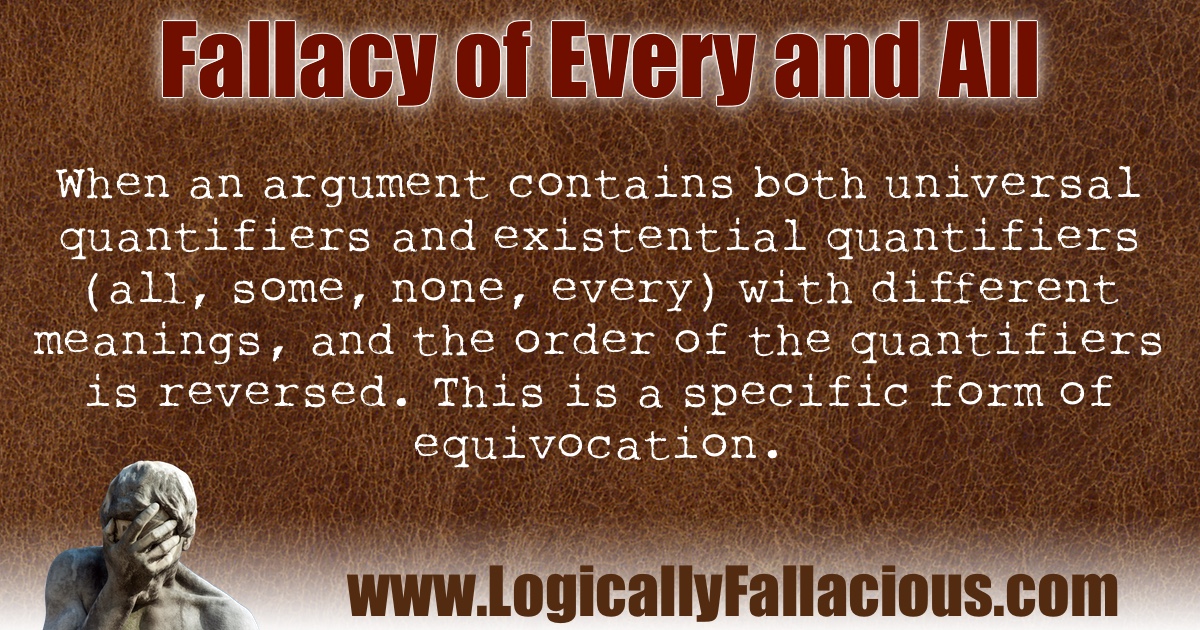Become an active member of our fallacy-discussing community (or just become a lurker!)
Description: When an argument contains both universal quantifiers and existential quantifiers (all, some, none, every) with different meanings, and the order of the quantifiers is reversed. This is a specific form of equivocation.
Logical Form:
Quantifier X then quantifier Y.
Therefore, quantifier Y then quantifier X.
Example #1:
Everyone should do something nice for someone. I am someone, so everyone should do something nice for me!
Explanation: We have a reversal of the quantifiers.
Everyone (quantifier X) should do something nice for someone (quantifier Y). I am someone (quantifier Y), so everyone (quantifier X) should do something nice for me!
Assuming one accepts the premise that "everyone should do something nice for someone," the word "someone" in that sentence means "some person or another" whereas in the second sentence it means "a specific person." By equivocating the meanings of "someone," we appear to be making a strong argument when in fact we are not.
Example #2:
Everyone loves someone.
I am someone.
Therefore, everyone loves me!
Explanation: “Someone” (quantifier X) referred to “any given person” in the first premise. In the second premise, “someone” is referring specifically to me. In the conclusion, we have a reversal of the quantifiers as they were presented in the premises.
Exception: No exceptions.
Tip: It really is a good idea to do something nice for someone.

References:
Salmon, M. H. (2012). Introduction to Logic and Critical Thinking. Cengage Learning.
Questions about this fallacy? Ask our community!
Eat Meat... Or Don't.
Roughly 95% of Americans don’t appear to have an ethical problem with animals being killed for food, yet all of us would have a serious problem with humans being killed for food. What does an animal lack that a human has that justifies killing the animal for food but not the human?
As you start to list properties that the animal lacks to justify eating them, you begin to realize that some humans also lack those properties, yet we don’t eat those humans. Is this logical proof that killing and eating animals for food is immoral? Don’t put away your steak knife just yet.
In Eat Meat… Or Don’t, we examine the moral arguments for and against eating meat with both philosophical and scientific rigor. This book is not about pushing some ideological agenda; it’s ultimately a book about critical thinking.
Get 20% off this book and all Bo's books*. Use the promotion code: websiteusers
* This is for the author's bookstore only. Applies to autographed hardcover, audiobook, and ebook.